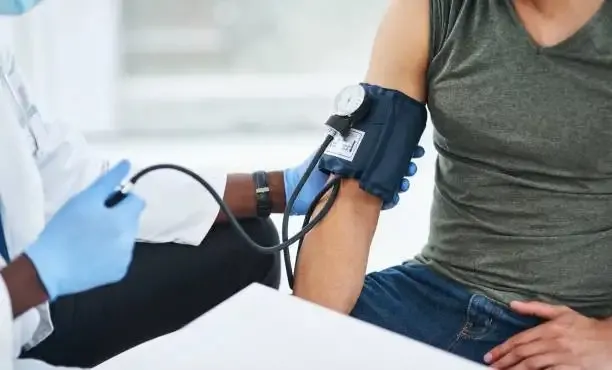
1. Drinking Too Much Alcohol
Alcohol abuse that is prolonged and extensive might raise blood pressure. It is advised that neither men nor women consume more than two standard drinks per day or four standard drinks in a single sitting.
Action: Strive to adhere to the nation’s alcohol consumption guidelines and educate yourself on what a “standard drink” is. If your intake is currently higher than advised, create a plan to gradually reduce it until it falls within the healthy range. Consult your neighbourhood doctor if you
2. Older Age
As you get older, your chance of having high blood pressure rises; the older you are, the more likely it is that you will do so. The AHA claims that as time passes, blood vessels gradually lose their suppleness, which can lead to high blood pressure.
The National Heart, Lung, and Blood Institute notes that the risk of prehypertension and high blood pressure has been rising in recent years among young individuals, particularly children and teenagers, probably as a result of the increase in obesity in these populations.
3. Lose Weight
An increase in blood volume and a shift in the hormones that control blood pressure are two ways that extra weight, and particularly extra fat that is stored in the abdomen, can elevate blood pressure. According to study, decreasing even a small amount of weight — just 7.7 pounds — can significantly lower your risk of developing high blood pressure — by as much as 50%.
4. Diet and Exercise
While knowing your personal risk factors and family history is crucial, you should also think about the things you can change. Two important determinants are diet and degree of activity.
Aim to eat more fruits, veggies, and whole grains in your diet. Try to consume less foods that are high in cholesterol, saturated fat, and sodium. Pick foods that are high in potassium to lessen the effect of salt on your blood pressure.
Exercise is also important. Your blood pressure can be lowered and you can prevent developing persistent high blood pressure by engaging in 150 minutes of moderate exercise each week.
5. Eating too much sodium
Americans frequently consume too much salt, also known as sodium chloride. And eating too much of it can increase your risk of developing hypertension. The sources with the highest salt content are processed meals and restaurant food. The most recent CDC recommendations urge consuming less sodium per day than 2300 mg. Americans consume more over 3400 mg everyday on average. Even a 1000 mg reduction can have significant advantages.
This is due to the fact that consuming too much salt increases your risk of heart disease, stroke, and other health concerns.
6. Using Tobacco
Your blood pressure temporarily increases when you smoke or chew tobacco, partially as a result of the effects of nicotine. Additionally, the chemicals in tobacco can harm the lining of your artery walls, resulting in a narrowing of the arteries and an increase in blood pressure. Your blood pressure may
7. Stress
Although the long-term effects of mind-body therapies on blood pressure are unclear, it is known that the body’s stress response causes a temporary elevation in blood pressure. If you consistently engage in a stress-relieving activity, such as breathing exercises, progressive relaxation, or physical activity, you’ll feel better and find it simpler to make other good adjustments. It has been demonstrated that one method, meditation, lowers the risk of heart attacks and strokes in patients with high blood pressure.
8. Not Being Physically Active
Exercise improves blood flow through all of the body’s arteries, which triggers the production of cytokines and natural hormones that relax blood vessels and lower blood pressure. Being overweight is also more likely when you don’t exercise.